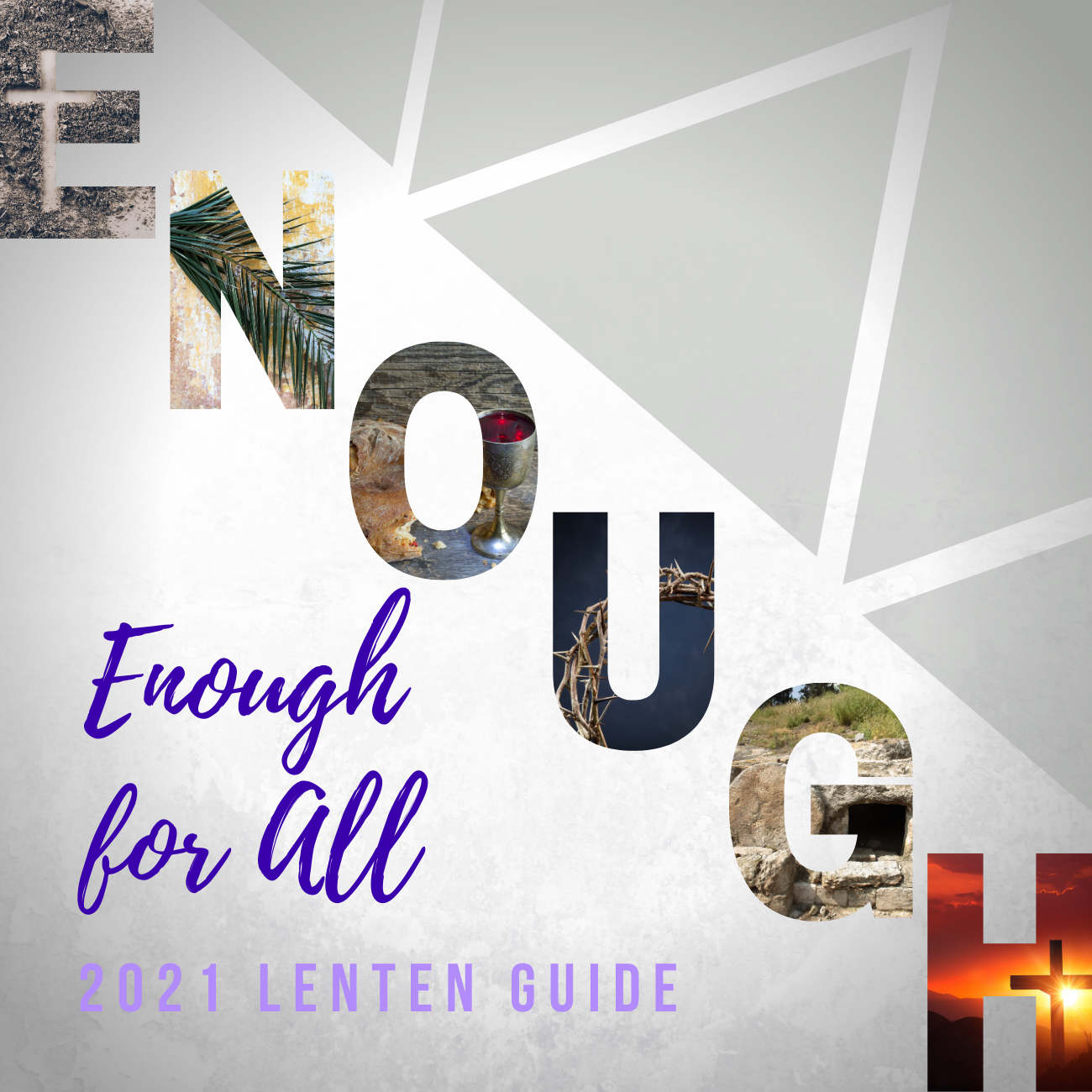Excerpted from Enough for All, a Lenten Guide for Lectionary Year B from the North Carolina Council of Churches. Written by Andrew Whitworth, Duke Divinity School Intern, Summer of 2020 to Spring 2021
Isaiah 58:1-12
Shout out, do not hold back!
Lift up your voice like a trumpet!
Announce to my people their rebellion,
to the house of Jacob their sins.
Yet day after day they seek me
and delight to know my ways,
as if they were a nation that practiced righteousness
and did not forsake the ordinance of their God;
they ask of me righteous judgements,
they delight to draw near to God.
‘Why do we fast, but you do not see?
Why humble ourselves, but you do not notice?’
Look, you serve your own interest on your fast-day,
and oppress all your workers.
Look, you fast only to quarrel and to fight
and to strike with a wicked fist.
Such fasting as you do today
will not make your voice heard on high.
Is such the fast that I choose,
a day to humble oneself?
Is it to bow down the head like a bulrush,
and to lie in sackcloth and ashes?
Will you call this a fast,
a day acceptable to the Lord?
Is not this the fast that I choose:
to loose the bonds of injustice,
to undo the thongs of the yoke,
to let the oppressed go free,
and to break every yoke?
Is it not to share your bread with the hungry,
and bring the homeless poor into your house;
when you see the naked, to cover them,
and not to hide yourself from your own kin?
Then your light shall break forth like the dawn,
and your healing shall spring up quickly;
your vindicator shall go before you,
the glory of the Lord shall be your rearguard.
Then you shall call, and the Lord will answer;
you shall cry for help, and he will say, Here I am.
If you remove the yoke from among you,
the pointing of the finger, the speaking of evil,
if you offer your food to the hungry
and satisfy the needs of the afflicted,
then your light shall rise in the darkness
and your gloom be like the noonday.
The Lord will guide you continually,
and satisfy your needs in parched places,
and make your bones strong;
and you shall be like a watered garden,
like a spring of water,
whose waters never fail.
Your ancient ruins shall be rebuilt;
you shall raise up the foundations of many generations;
you shall be called the repairer of the breach,
the restorer of streets to live in.
Most years, I am relieved when Ash Wednesday rolls around. As a society, we so rarely take time collectively to acknowledge that we are all, in one way or another, closer to our deaths today than we were yesterday. I usually find the chance to do this together uniquely moving.
This year, though, I do not need Ash Wednesday to be a collective reminder of our mortality. In some ways, the Covid-19 pandemic has made it difficult to feel like last year’s Lenten observance ever really ended. We feel isolated, tired, powerless, grieved, always staring down the reality that we are but dust. The observance of Ash Wednesday seems gratuitous in days so marked by the shadow of death and the pains of isolation.
The prophet Isaiah changed my mind, though. In Isaiah 58, the prophet speaks on God’s behalf to Israel, reminding them that they have forgotten the point of their fasting and religious observance. They reflect and acknowledge, pray and perform, and yet change nothing about their lives and their communities. “Will you call this a fast, a day acceptable to the Lord?” asks God. God’s question to Israel is also a question to us. What is the point of our religious observance if it does not bring us to repent both of the things we have done and the things done on our behalf and move us to find solidarity with our neighbors?
Ash Wednesday is not just about being a little sadder than we usually are. Simply reflecting on our own frailty will not bring us closer to God. Rather, it’s a reminder and an invitation to something. Isaiah reminds us that God is not interested in our sober performance of Lent for its own sake. “Such fasting as you do today will not make your voice heard on high,” the prophet says. The point is that we would change our lives! Our Ash Wednesday and Lenten observance should move us, towards God and towards each other. The call to us this Ash Wednesday and Lenten season is a call to humility, a call to remember what kind of creatures we are. We are all but dust and to dust we shall return.
To acknowledge this is to acknowledge that we are not God, over our own lives or our neighbors. Too often, though, this is what we humans do with power. We try to play God, determining who deserves food, healthcare, housing, voting rights, and the list could go on. But if Lent is to be a fast that is pleasing to God, bringing true repentance, then it begins with our Ash Wednesday acknowledgement that we are all dust. None of us deserve these things more than anyone else. Before our light can “break forth like the dawn,” out of Ash Wednesday, Lent, and season of Covid-19, then we must hear God’s words in Isaiah as if to us:
Is not this the fast that I choose:
to loose the bonds of injustice,
to undo the thongs of the yoke,
to let the oppressed go free,
and to break every yoke?
Is it not to share your bread with the hungry,
and bring the homeless poor into your house;
when you see the naked, to cover them,
and not to hide yourself from your own kin?

